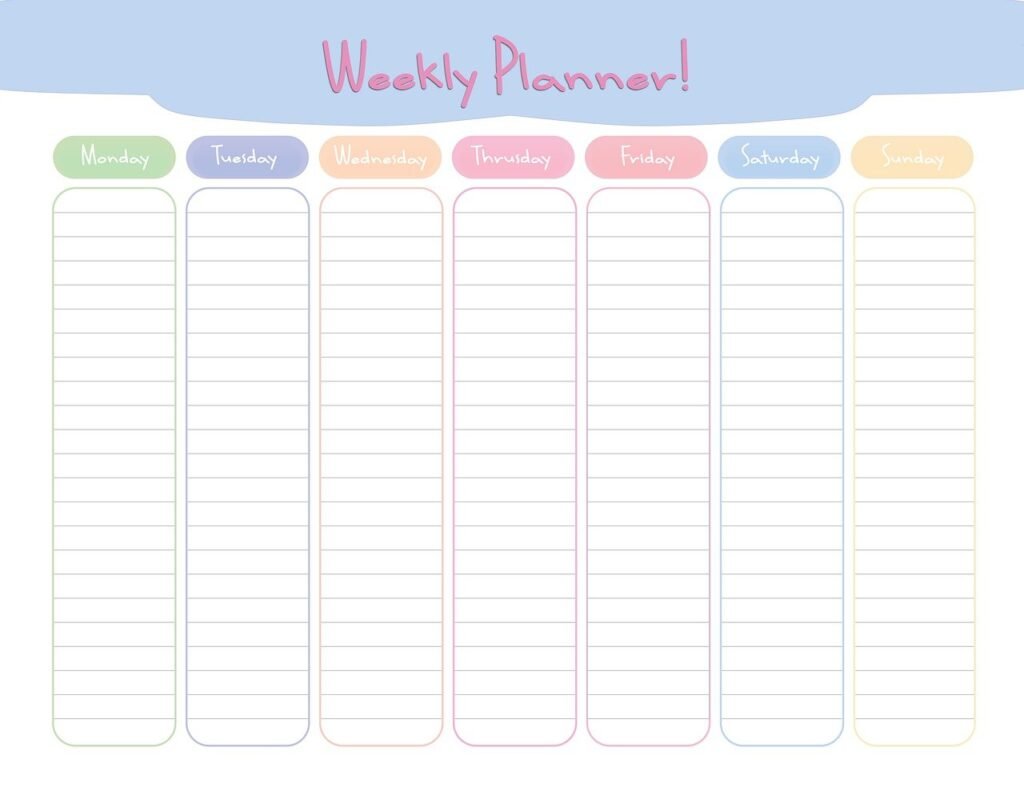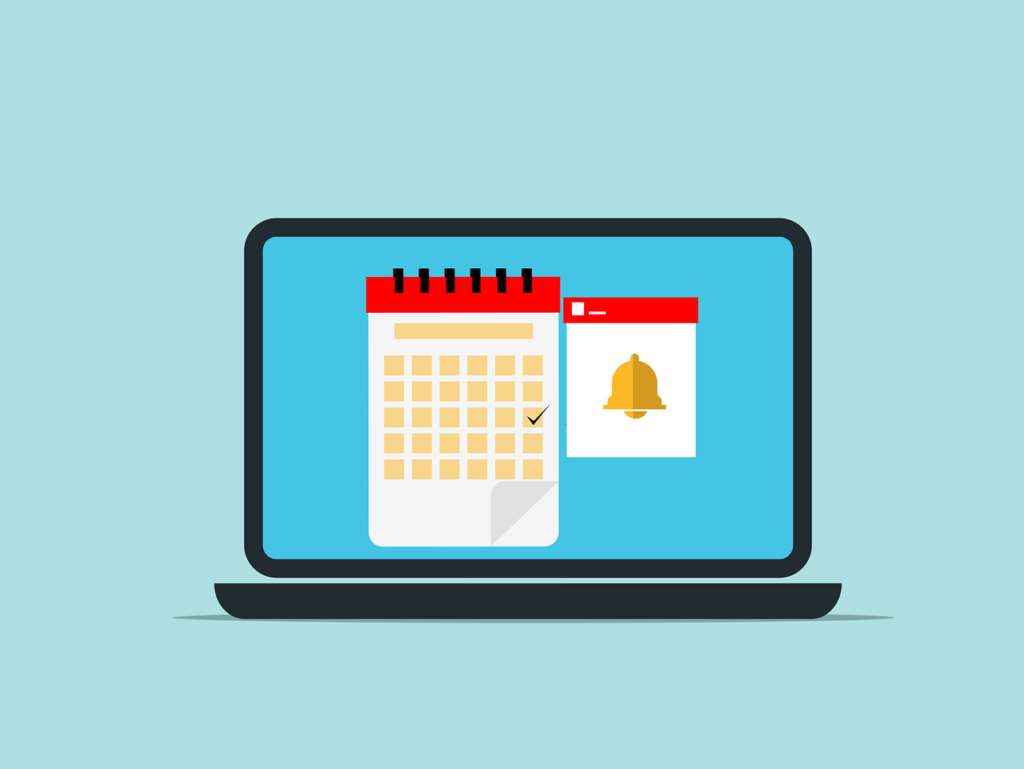
Intro
Yo, so you’re looking to crush those academic goals, huh? Whether it’s acing that big exam or getting through the semester without losing your mind, having some solid strategies in place is where it’s at. Setting goals is all about making the ride smoother and less stressful, ya know? Dive into these seven ways to totally own your academic goals and see how much difference a little planning can make.
Stay Organized with Effective Planning

Alright, first things first—organization is key.
Got a planner? No? Get one! Or, if you’re all about the digital life, use your phone’s calendar.
Write down all your deadlines, test dates, and major assignments.
Having everything laid out helps big time in seeing what needs to be tackled and when.
This way, you don’t end up with a pile of work right before finals.
Trust, it’s a life-changer.
Planning isn’t just about writing stuff down though.
Try color-coding different subjects or types of tasks.
It makes everything way easier to spot at a glance.
Like, use one color for exams, another for assignments, and so on.
It’ll make your planner (or calendar app) look less like a chaotic mess and more like a well-oiled machine.
Next, prioritize.
Not everything is equally important, right? Some tasks are due sooner, others are worth more points.
Rank your tasks and start with the high-priority ones.
You can even use the Eisenhower Matrix (Google it, it’s dope) to help decide what’s urgent and what’s not.
Basically, break tasks into four categories: urgent/important, important/not urgent, urgent/not important, and not urgent/not important.
Focus on the urgent/important stuff first. Don’t forget to leave some buffer time in your plan.
Stuff happens—life can be unpredictable.
Maybe you get sick or you get hit with some surprise assignment.
Having some extra time planned in can save your butt.
Also, use tools like sticky notes or reminders on your phone to keep you on track.
Sometimes a little “Don’t forget about that paper!” popping up on your screen can be just what you need to stay on task.
Remember, being organized isn’t about being perfect.
It’s about making things easier for yourself.
If you miss a deadline or something slips through the cracks, don’t beat yourself up.
Just tweak your plan and keep moving forward.
And hey, don’t make your planner or calendar all work and no play.
Schedule in some downtime, too. Balance, remember? You gotta have some chill time to recharge.
Create a Realistic Study Schedule

Okay, let’s talk about nailing that study schedule.
Nobody expects you to hit the books 24/7—gotta keep it real, right?
But having a solid, realistic study schedule can save you from that last-minute panic mode.
Here’s what I’m talking about: break it down into manageable chunks.
You know that marathon study session you dread? Yeah, don’t do that.
Instead, spread out your study time over the week.
First off, figure out when you’re most alert.
Some people are morning people, others are night owls.
Schedule your most intense study sessions when your brain’s at its best.
Now, make it a mix.
Don’t just study one subject for hours.
Rotate through a couple subjects to keep things interesting.
It’s kinda like cross-training for your brain.
Spend an hour on math, then switch to history or whatever you’ve got on deck.
And breaks—don’t forget those! Your brain needs downtime to process everything.
Try something like the Pomodoro Technique: 25 minutes of studying, 5-minute break.
Repeat a few times, then take a longer break.
It keeps you focused and helps avoid burnout.
Also, be realistic about how much you can do in a day.
Don’t pack your schedule so tight that you can’t breathe.
Leave some space for unexpected stuff.
You never know when a surprise assignment might pop up or you just need a little extra time to grasp a tricky concept.
Set short-term and long-term goals within your schedule.
Maybe this week’s goal is to finish a chapter and the month’s goal is to ace a test.
Breaking it down makes it less intimidating.
Keep track of how long certain tasks take you.
It helps you plan better for the future.
If you see that reading a chapter takes two hours, you’ll know to schedule accordingly next time.
Lastly, reward yourself when you stick to your schedule.
Finished your study block for the day? Treat yourself to something small, like a snack or a quick episode of your fave show.
It keeps you motivated and gives you something to look forward to.
So get that study schedule sorted, and watch how it changes your academic life.
Break Big Goals into Smaller Steps

Feeling overwhelmed by a giant goal? Break it down into smaller, more manageable steps!
Think about it like this: instead of tackling a massive project all at once, split it into chunks you can handle day by day.
Got a big research paper? Start with researching one day, outline the next, and write a little bit each day after that.
It’s like chopping up a huge task into bite-sized pieces that are way easier to swallow.
Not only does this make the whole thing less intimidating, but it also gives you small wins along the way, which can be super motivating.
Each mini-goal you complete is like a pat on the back and a step closer to the big picture.
Breaking things down also helps with tracking progress.
When you’ve got smaller steps, it’s easier to see how far you’ve come and what’s left to do.
It’s kinda like turning a giant mountain into a series of smaller hills.
Before you know it, you’re at the top without feeling totally drained.
Also, don’t forget to set deadlines for these smaller steps.
Having a timeline helps keep you on track and prevents the last-minute scramble.
Just make sure the deadlines are realistic—no point in setting yourself up to fail.
Another pro tip: prioritize these smaller tasks. Sometimes, certain parts of a big goal need to be done before others.
Figure out what needs to happen first and work your way from there.
It helps create a logical flow and makes everything a bit smoother.
Oh, and keep checking off those completed steps.
It’s super satisfying and gives you a visual reminder of your progress.
Whether you’re crossing it off in your planner or ticking a box in an app, it feels great to see that list get shorter.
Remember, breaking big goals into smaller steps isn’t just about making things easier—it’s about making progress more manageable and keeping your motivation high.
So next time you’ve got a massive goal, chop it up, take it step by step, and watch yourself crush it!
Use Study Groups for Better Learning

So, you know how studying alone can sometimes feel like hitting a brick wall? Well, study groups can be a total game-changer.
Imagine pooling together all that brainpower—it’s like having a super squad for your academic goals.
Grab a few classmates and set up regular meet-ups.
Everyone’s got their strengths, so when someone’s struggling with one thing, another person can step in and explain it in a way that clicks.
One of the best things about study groups is the different perspectives.
Sometimes the way a teacher explains something just doesn’t make sense, but hearing it from a peer can make it all fall into place.
Plus, teaching others is a killer way to solidify your own understanding.
If you can explain a concept to someone else, you’ve pretty much got it down.
Another bonus? Accountability.
When you know others are counting on you to show up and contribute, you’re way less likely to slack off.
It’s like having built-in motivation to stay on top of your work.
And let’s be real, a little friendly competition can push everyone to do better.
Keep the group focused, though. It’s easy to turn a study session into a hangout, but remember why you’re there.
Set an agenda for each meeting—maybe start with reviewing notes, then dive into some problem-solving, and wrap up with a quick quiz.
Structure keeps things on track and makes sure you’re actually being productive.
You can also split up the workload.
Maybe someone’s great at taking notes, another person excels at summarizing chapters, and someone else is a whiz at making flashcards.
Dividing tasks like this can save everyone time and effort, plus you get the best of everyone’s skills.
Use tech to your advantage, too.
Set up a shared Google Doc or a group chat to keep everyone updated.
This way, even if someone can’t make it to a session, they can still contribute and stay in the loop.
And don’t forget, studying in a group doesn’t mean you have to be serious all the time.
Crack some jokes, share a meme or two—just keep it balanced so you can have fun while getting stuff done.
Track Your Progress and Stay Accountable

Alright, keeping track of your progress is a total game-changer for smashing those academic goals.
Think about it like this: if you don’t know how far you’ve come, it’s hard to see where you’re headed, right?
So, jot down what you’ve accomplished each week.
It doesn’t have to be anything fancy—just a quick note of what you’ve knocked out.
Finished a chapter? Wrote a page of that paper? Note it down.
Seeing your progress can be a real confidence booster and keep you motivated to push forward.
Now, staying accountable is just as crucial.
Share your goals with a friend or a mentor.
They can be your personal cheerleader and give you that extra nudge when you start slacking.
Plus, knowing someone else is in on your plans can make you more likely to stick to them.
No one wants to let their buddy down, right? Set up regular check-ins.
Maybe it’s a quick text exchange every Friday or a monthly coffee catch-up.
These check-ins can help you reflect on what’s working and what needs tweaking.
And let’s be real, having someone to celebrate those small wins with makes the grind a bit more bearable.
Another cool trick is using a tracking app or a simple spreadsheet to log your tasks and goals.
This way, you can see everything in one place and it’s super easy to spot patterns.
If you notice you’re consistently missing deadlines, you can figure out why and adjust your game plan. Visuals help too.
Try a progress chart or a checklist you can stick on your wall or keep in your planner.
Crossing things off can be oddly satisfying and gives you a clear visual of your achievements.
Plus, it’s a constant reminder of how much you’ve already accomplished.
Also, consider setting mini-deadlines within your bigger deadlines.
It helps break down those tasks even more and keeps you on a steady pace.
If you’ve got a paper due in a month, set weekly goals for each section.
It’s way less intimidating than staring down a huge due date.
And hey, remember those small milestones you noted down? Use them to tweak your study schedule.
If something took longer than expected, adjust your future plans to reflect that.
It’s all about learning and improving as you go.
Keep those goals in sight and track your way to academic success!
Seek Help When Needed, Don’t Hesitate

Got a subject that’s making your brain hurt?
Don’t just sit there hoping it’ll magically make sense—get some help!
Seriously, reaching out when you’re stuck is super important for hitting those academic goals.
Your teachers are there to help you.
Don’t be afraid to ask them to explain things again or to give you extra resources.
Most of them actually like seeing students who care enough to ask questions.
And hey, don’t forget about tutors.
Schools usually offer tutoring services, and there’s no shame in using them.
Tutors can break things down in a way that might just click better for you.
Sometimes, it’s easier to understand stuff when someone explains it one-on-one.
Classmates can be lifesavers too.
If you know someone who’s acing the subject you’re struggling with, ask them to help you out.
Chances are, they’ll be happy to give you a hand.
Remember, you’re all in this together, so why not pool your resources?
Online forums and study websites are goldmines.
Sites like Khan Academy, Coursera, and even YouTube have tons of tutorials and explainer videos.
These can be super handy when you need a different perspective or a step-by-step walkthrough.
Don’t overlook study apps either.
Apps like Quizlet or Socratic can help make studying a little less painful.
They have built-in quizzes, flashcards, and other tools that can make tricky subjects more manageable.
If it feels like you’re struggling with a lot, maybe even talk to a school counselor. Sometimes, the problem isn’t just the subject matter but how you’re feeling overall.
Counselors can help you figure out a plan to manage stress and study more effectively.
Lastly, don’t wait until things get really bad before you seek help.
The sooner you reach out, the easier it’ll be to get back on track.
Whether it’s a quick chat with a teacher, a study session with a friend, or a deep dive into online resources, getting help can make all the difference in smashing those academic goals.
Reward Yourself for Milestones Achieved

So, you’ve been grinding hard and hitting those milestones—time to celebrate!
Seriously, rewarding yourself for achieving your academic goals is key.
Think of it like this: you’re not just studying for the sake of it, you’re building towards something.
And when you hit those milestones, no matter how small, it’s worth a little celebration.
First off, figure out what kind of rewards get you pumped.
Maybe it’s a sweet treat, a shopping spree, or some extra time gaming.
Whatever does it for you, make sure it’s something you really look forward to.
Now, keep those rewards proportional.
Knocked out a huge project? Maybe treat yourself to a night out or buy that gadget you’ve been eyeing. Finished a chapter of reading?
Maybe just a quick coffee break or a couple episodes of your fave show.
It’s all about balancing the effort with the reward.
Set up a reward system.
Like, if you’ve got a big exam coming up, plan a small reward for each study session you complete.
This keeps you motivated and breaks up the monotony of studying.
You’re basically turning your academic goals into a game, and who doesn’t love winning?
Incorporate some social rewards too.
Sometimes the best way to celebrate is with friends.
Plan a study group celebration when you all finish a big project or crush a test.
It’s a win-win: you get to hang out and you’re reinforcing that sense of accomplishment together.
Don’t forget the power of self-care as a reward.
Taking a break to relax and recharge can be just as rewarding as any physical treat.
Think bubble baths, a good book, or even just some extra sleep.
And hey, if you hit a long-term goal, make the reward a bit bigger.
You’ve worked hard for it! Maybe plan a weekend trip or buy yourself something you’ve wanted for ages.
It’s a great way to mark the achievement and remind yourself that all that hard work was worth it.
